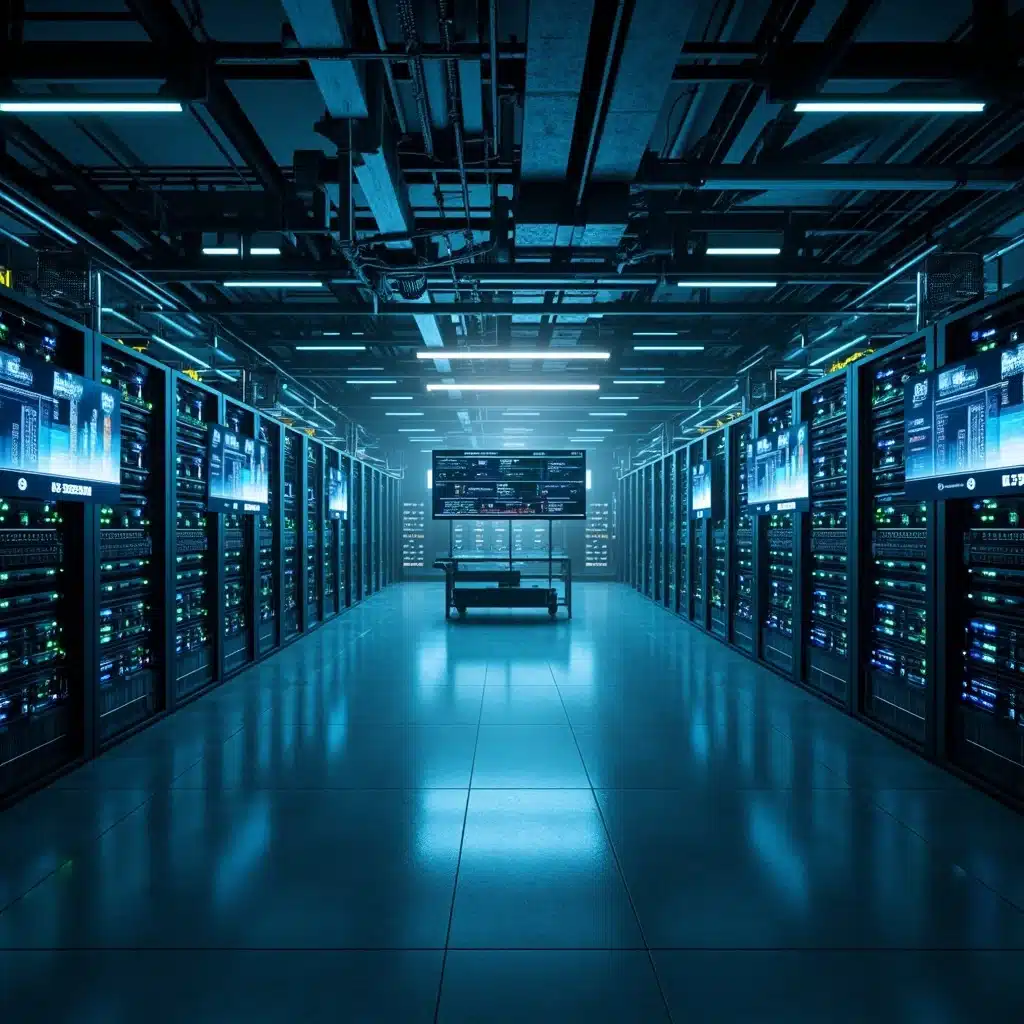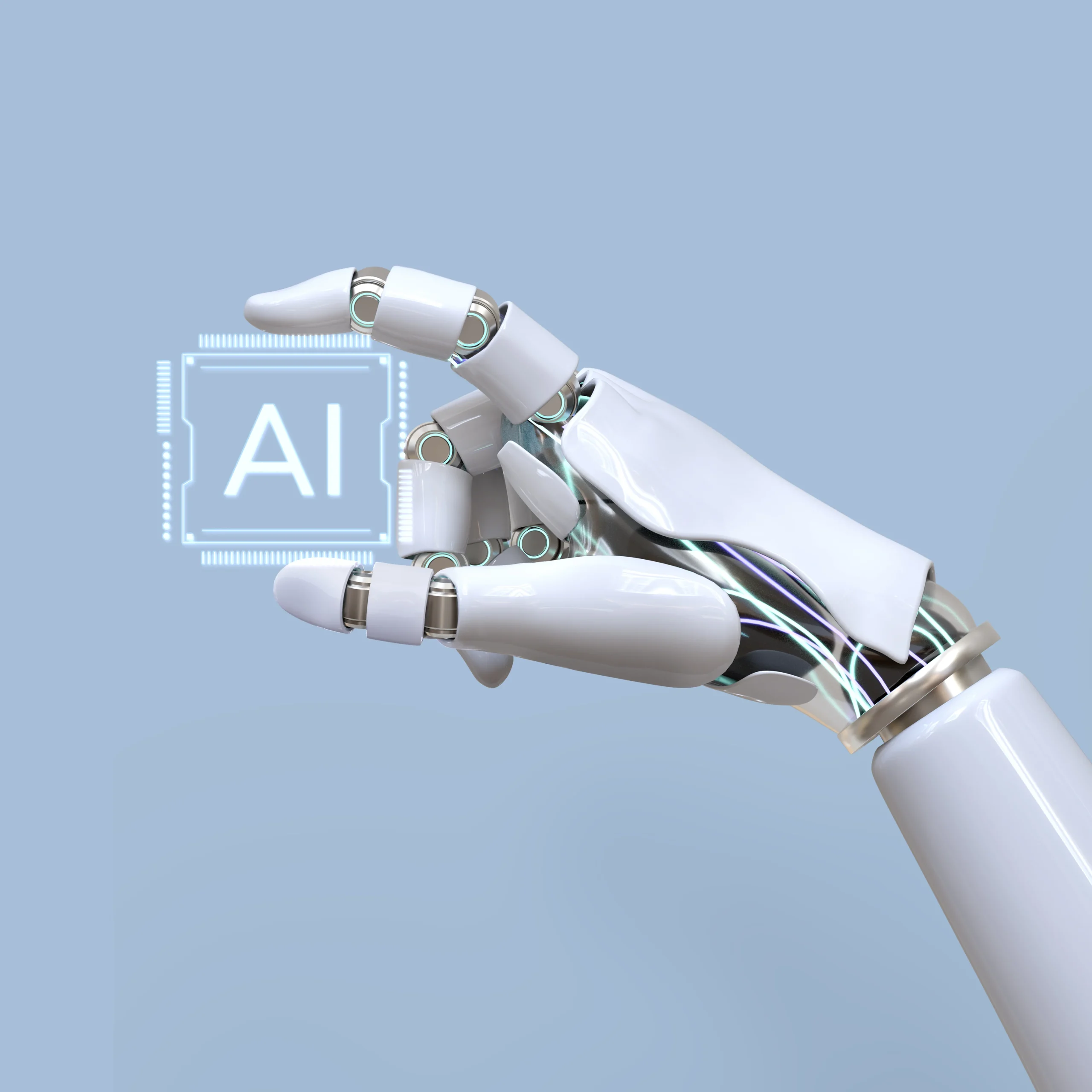Introduction
Artificial Intelligence (AI) has rapidly become one of the most influential technologies of the 21st century. From voice assistants like Siri and Alexa to advanced medical diagnosis systems, AI is reshaping industries, driving innovation, and changing the way humans interact with machines. With its growing presence in everyday life, AI has become more than just a technological trend—it is a powerful force that is transforming the global economy, businesses, and societies.
In this article, we will explore what AI is, its types, applications, benefits, challenges, and the future potential of this revolutionary technology.
What is Artificial Intelligence (AI)?
Artificial Intelligence, commonly known as AI, refers to the simulation of human intelligence in machines that are designed to think, reason, learn, and make decisions. These intelligent systems utilise algorithms and vast amounts of data to recognise patterns, solve problems, and perform tasks that typically require human intelligence.
AI technologies are often powered by machine learning (ML), natural language processing (NLP), robotics, and deep learning models. Together, these components allow AI systems to analyze data, understand languages, recognize images, and even predict future outcomes.
Types of Artificial Intelligence
AI can be categorized into different types based on its capabilities and functionality:
1. Narrow AI (Weak AI)
Narrow AI refers to systems that are designed for a specific task, such as spam email filters, chatbots, or virtual assistants. These systems are highly efficient but cannot perform functions outside their programmed scope.
2. General AI (Strong AI)
General AI is a more advanced form of intelligence that can perform any intellectual task that a human can do. Although still theoretical, researchers are actively working on creating machines with human-like reasoning and adaptability.
3. Superintelligent AI
Superintelligent AI goes beyond human intelligence, with the ability to outperform humans in creativity, problem-solving, and decision-making. While it remains speculative, it has sparked ethical and philosophical debates worldwide.
Applications of Artificial Intelligence
AI applications are vast and continue to expand across industries. Here are some of the most impactful areas where AI is making a difference:
1. Healthcare
AI is revolutionising healthcare by assisting in medical diagnosis, drug discovery, and personalised treatment plans. Machine learning algorithms can detect diseases such as cancer or heart conditions at early stages, improving patient outcomes.
2. Business and Finance
In the business sector, AI automates customer support through chatbots, enhances marketing strategies with predictive analytics, and improves decision-making with real-time data analysis. In finance, AI helps detect fraud, assess risks, and automate trading.
3. Education
AI-driven tools personalize learning experiences, identify student weaknesses, and provide interactive tutoring solutions. Online learning platforms leverage AI to adapt content according to learners’ progress.
4. Transportation
Self-driving cars, AI-powered traffic management systems, and predictive maintenance in aviation are transforming the transportation industry, making it safer and more efficient.
5. Retail and E-commerce
AI enhances customer experience through product recommendations, automated inventory management, and personalized marketing strategies. Companies like Amazon and Netflix rely heavily on AI to boost engagement.
6. Cybersecurity
AI systems detect and prevent cyber threats by monitoring network patterns, identifying vulnerabilities, and responding to suspicious activities faster than traditional methods.
Benefits of Artificial Intelligence
The adoption of AI brings numerous benefits across different fields:
-
Automation of tasks: AI reduces human workload by handling repetitive and time-consuming tasks.
-
Improved decision-making: Data-driven insights enable faster and more accurate business strategies.
-
Cost efficiency: AI systems streamline operations, minimize errors, and increase productivity.
-
Personalization: From tailored marketing campaigns to custom learning plans, AI provides personalized experiences.
-
Innovation opportunities: AI drives research and development in fields like medicine, climate change, and space exploration.
Challenges of Artificial Intelligence
While AI offers immense potential, it also poses several challenges:
-
Job displacement – Automation may replace certain human roles, leading to unemployment in some industries.
-
Bias and fairness – AI systems can inherit biases from the data they are trained on, raising ethical concerns.
-
Privacy issues – AI’s reliance on data collection raises concerns about user privacy and data security.
-
High costs – Developing and maintaining AI systems requires significant financial investment.
-
Ethical risks – Questions about control, accountability, and the use of AI in sensitive areas like warfare continue to spark debate.
The Future of Artificial Intelligence
The future of AI is promising, with advancements expected in almost every sector:
-
Healthcare breakthroughs – AI will contribute to precision medicine, robotic surgeries, and faster vaccine development.
-
Sustainable solutions – AI can help combat climate change by optimizing energy consumption and monitoring environmental changes.
-
Smart cities – AI-driven technologies will improve traffic systems, waste management, and public safety.
-
Advanced robotics – Robots powered by AI will assist in manufacturing, elderly care, and even space exploration.
-
Ethical AI frameworks – Governments and organizations will develop regulations to ensure AI is used responsibly.
Conclusion
Artificial Intelligence is no longer a futuristic concept—it is a present-day reality that continues to reshape industries, economies, and societies. With applications in healthcare, business, education, and beyond, AI is unlocking new possibilities while raising important ethical questions.
As technology evolves, AI will play an even greater role in solving global challenges and driving innovation. However, balancing its benefits with ethical considerations will be crucial for creating a sustainable and fair future powered by Artificial Intelligence.










 Samapak Food Industry is one of PMS’s satisfied e-commerce websites. Sama Pak Food is the webshop where you can find all your care products. The webshop was founded after customers from both at home and abroad asked us if we could send the products to them.
Samapak Food Industry is one of PMS’s satisfied e-commerce websites. Sama Pak Food is the webshop where you can find all your care products. The webshop was founded after customers from both at home and abroad asked us if we could send the products to them. Alkaram Foam is one of PMS’s dynamic websites. Alkaram Foam is a name of quality, luxury, and comfort. We offer foam mattress, spring mattress and medicated mattress at market-beating prices. Also, we make EPE foam rolls (Jumbolon rolls) and EPE shells (Jumbolon shells) for businesses.
Alkaram Foam is one of PMS’s dynamic websites. Alkaram Foam is a name of quality, luxury, and comfort. We offer foam mattress, spring mattress and medicated mattress at market-beating prices. Also, we make EPE foam rolls (Jumbolon rolls) and EPE shells (Jumbolon shells) for businesses. Al Noor Rice Corporation is one of PMS’s satisfied e-commerce websites. AL NOOR provides the best quality of Rice to its customers all over Pakistan and the Rest of the World. We are renowned for producing different varieties of Basmati like Super Basmati Rice, 1121 Basmati Rice, 1509 Basmati Rice, and various categories of non-Basmati rice like C9, 386, irri-6 and irri-9.
Al Noor Rice Corporation is one of PMS’s satisfied e-commerce websites. AL NOOR provides the best quality of Rice to its customers all over Pakistan and the Rest of the World. We are renowned for producing different varieties of Basmati like Super Basmati Rice, 1121 Basmati Rice, 1509 Basmati Rice, and various categories of non-Basmati rice like C9, 386, irri-6 and irri-9.



 Skye VIP Cars is one of PMS’s dynamic websites. It offers all kinds of car services in Dubai and all over the UAE, pleasing our clients to the highest level.
Skye VIP Cars is one of PMS’s dynamic websites. It offers all kinds of car services in Dubai and all over the UAE, pleasing our clients to the highest level. Delta Wye Power Incorporation is one of PMS’s satisfied e-commerce websites. Delta Wye Power Inc., another company he is involved with, focuses on medium-voltage transformers.
Delta Wye Power Incorporation is one of PMS’s satisfied e-commerce websites. Delta Wye Power Inc., another company he is involved with, focuses on medium-voltage transformers. County Public High School is one of the best dynamic websites of PMS. CPS Gujrat has been set up to provide a sound education to the students with special emphasis on character building and the development of a wholesome personality. We aim to build the student’s power of judgment and appraisal of evidence by reasoning and inference.
County Public High School is one of the best dynamic websites of PMS. CPS Gujrat has been set up to provide a sound education to the students with special emphasis on character building and the development of a wholesome personality. We aim to build the student’s power of judgment and appraisal of evidence by reasoning and inference. Cancer Patients Welfare Society GINUM is one of the best dynamic websites of PMS. The ultimate goal of CPWS GINUM is to help the ailing humanity of Cancer disease. CPWS helps cancer patients by providing free medicines and diagnostic facilities. In addition, CPWS helps GINUM administration in all aspects for the benefit of patients.
Cancer Patients Welfare Society GINUM is one of the best dynamic websites of PMS. The ultimate goal of CPWS GINUM is to help the ailing humanity of Cancer disease. CPWS helps cancer patients by providing free medicines and diagnostic facilities. In addition, CPWS helps GINUM administration in all aspects for the benefit of patients. Al-Huda Rice Mills is one of the best dynamic websites of PMS.
Al-Huda Rice Mills is one of the best dynamic websites of PMS. 

 Ayk Trading Ltd. is one of the best landing page websites of PMS. Their Success is driven by the workforce & their Commitment to getting Results in the Right Way by Operating Responsibly, Executing with Excellence, and Applying Innovative Technologies and capturing New Opportunities for Development.
Ayk Trading Ltd. is one of the best landing page websites of PMS. Their Success is driven by the workforce & their Commitment to getting Results in the Right Way by Operating Responsibly, Executing with Excellence, and Applying Innovative Technologies and capturing New Opportunities for Development. Qasim Iftikhar Corporation is one of the best dynamic websites of PMS. Qasim Iftikhar Corporation was founded in 2015 with a vision to import and export ferrous and nonferrous metals in particular Aluminium. The aluminum business is inherited from us from our parent company and we continue to trade in other ferrous and nonferrous metals.
Qasim Iftikhar Corporation is one of the best dynamic websites of PMS. Qasim Iftikhar Corporation was founded in 2015 with a vision to import and export ferrous and nonferrous metals in particular Aluminium. The aluminum business is inherited from us from our parent company and we continue to trade in other ferrous and nonferrous metals. Private Hospital Association Gujranwala is one of the best dynamic websites of PMS. The idea of a Private Hospital Association was the brainchild of Dr. Asif Ali Chaudhry, a renowned GP of Gujranwala, and his son Dr. Asad Ali Chaudhry, a prominent Gastro-Entrologist of our city, in view of an ever-increasing trend of medico-legal cases against private hospitals in this city.
Private Hospital Association Gujranwala is one of the best dynamic websites of PMS. The idea of a Private Hospital Association was the brainchild of Dr. Asif Ali Chaudhry, a renowned GP of Gujranwala, and his son Dr. Asad Ali Chaudhry, a prominent Gastro-Entrologist of our city, in view of an ever-increasing trend of medico-legal cases against private hospitals in this city. GMT (Pvt.)Ltd. is one of the best dynamic websites of PMS. GMT Hearing Center is a Pakistani-based organization established in 2005. The purpose of the organization is to work for hearing, speech, physical and visual impairment.
GMT (Pvt.)Ltd. is one of the best dynamic websites of PMS. GMT Hearing Center is a Pakistani-based organization established in 2005. The purpose of the organization is to work for hearing, speech, physical and visual impairment. Sami Goods Transport is one of the best dynamic websites of PMS. Sami Goods Transport (Pvt.)Ltd. has the vision to utilize the latest means of technology to provide swift and reliable Logistics solutions that provide Ease to our clients.
Sami Goods Transport is one of the best dynamic websites of PMS. Sami Goods Transport (Pvt.)Ltd. has the vision to utilize the latest means of technology to provide swift and reliable Logistics solutions that provide Ease to our clients. PMS (Pvt.)Ltd. is proud to announce its partnership with PMSTTC. It has inspired students to become ethical leaders who lead lives significantly in services. It provides a way to get the technical training that you want according to your domain.
PMS (Pvt.)Ltd. is proud to announce its partnership with PMSTTC. It has inspired students to become ethical leaders who lead lives significantly in services. It provides a way to get the technical training that you want according to your domain.












 PMS (Pvt.)Ltd. is proud to announce its partnership with PTCL. Pakistan Telecommunication Company Limited (PTCL) a subsidiary of e& is the largest integrated Information Communication Technology (ICT) company in Pakistan.
PMS (Pvt.)Ltd. is proud to announce its partnership with PTCL. Pakistan Telecommunication Company Limited (PTCL) a subsidiary of e& is the largest integrated Information Communication Technology (ICT) company in Pakistan. PMS (Pvt.)Ltd. is proud to announce its partnership with DCN. DCN focuses on the data communication field with full product lines, including Switch, Wireless, Router, Security firewall and gateway, storage, CPE, and Cloud services.
PMS (Pvt.)Ltd. is proud to announce its partnership with DCN. DCN focuses on the data communication field with full product lines, including Switch, Wireless, Router, Security firewall and gateway, storage, CPE, and Cloud services. PMS (Pvt.)Ltd. is proud to announce its partnership with Poly. Poly is the leader in video and voice solutions. Learn how our technology can help your organization unleash the power of team collaboration.
PMS (Pvt.)Ltd. is proud to announce its partnership with Poly. Poly is the leader in video and voice solutions. Learn how our technology can help your organization unleash the power of team collaboration. PMS (Pvt.)Ltd. is proud to announce its partnership with Dell Technologies. It develops, sells, repairs, and supports computers and related products and services. Dell is owned by its parent company, Dell Technologies.
PMS (Pvt.)Ltd. is proud to announce its partnership with Dell Technologies. It develops, sells, repairs, and supports computers and related products and services. Dell is owned by its parent company, Dell Technologies. PMS (Pvt.)Ltd. is proud to announce its partnership with Hewlett-Packard. HP (Hewlett-Packard) is a multinational information technology (IT) company that sells hardware, software, and related business services.
PMS (Pvt.)Ltd. is proud to announce its partnership with Hewlett-Packard. HP (Hewlett-Packard) is a multinational information technology (IT) company that sells hardware, software, and related business services.
 At PMS (Pvt.)Ltd., we are dedicated to providing outstanding services to Royal Bio Fuel. It is a Trading Web-based Application. The main features of the Trading System are as follows:
At PMS (Pvt.)Ltd., we are dedicated to providing outstanding services to Royal Bio Fuel. It is a Trading Web-based Application. The main features of the Trading System are as follows: At PMS (Pvt.)Ltd., we are dedicated to providing outstanding services to Pehalwaan Rewri. It is a Point Sale Web-Based Application. The main features of the Point of Sale System are as follows:
At PMS (Pvt.)Ltd., we are dedicated to providing outstanding services to Pehalwaan Rewri. It is a Point Sale Web-Based Application. The main features of the Point of Sale System are as follows: PMS (Pvt.)Ltd. is proud to announce its partnership with Microsoft Partner Network. The Cloud Partner Program is how you build quickly, scale growth, sell worldwide, and stand out—all with a partner you can trust. No matter your goals, we’ll help you reach them.
PMS (Pvt.)Ltd. is proud to announce its partnership with Microsoft Partner Network. The Cloud Partner Program is how you build quickly, scale growth, sell worldwide, and stand out—all with a partner you can trust. No matter your goals, we’ll help you reach them. PMS (Pvt.)Ltd. is proud to announce its partnership with Kaspersky. Grow your business – by partnering with a world leader. We provide the tools, incentives, and support to help you take your business to the next level. Across the world, Kaspersky is recognized for its innovative security solutions.
PMS (Pvt.)Ltd. is proud to announce its partnership with Kaspersky. Grow your business – by partnering with a world leader. We provide the tools, incentives, and support to help you take your business to the next level. Across the world, Kaspersky is recognized for its innovative security solutions. PMS (Pvt.)Ltd. is proud to announce its membership with SAP. Partners drive customer success with solutions from SAP, delivering trusted advice and deep product knowledge. SAP partners help you get the most from your software while enabling a smooth deployment.
PMS (Pvt.)Ltd. is proud to announce its membership with SAP. Partners drive customer success with solutions from SAP, delivering trusted advice and deep product knowledge. SAP partners help you get the most from your software while enabling a smooth deployment. PMS (Pvt.)Ltd. is proud to announce its partnership with Oracle. Oracle’s Partner ecosystem is critical to our customer’s success. Their differentiated services, combined with Oracle’s technology, help enable our customers to achieve their business goals.
PMS (Pvt.)Ltd. is proud to announce its partnership with Oracle. Oracle’s Partner ecosystem is critical to our customer’s success. Their differentiated services, combined with Oracle’s technology, help enable our customers to achieve their business goals.

 PMS (Pvt.)Ltd. is proud to announce its partnership with ACTi. ACTi provides the full range of surveillance products – IP cameras, video management systems, TV wall systems, mobile applications, IoT devices, and access control systems.
PMS (Pvt.)Ltd. is proud to announce its partnership with ACTi. ACTi provides the full range of surveillance products – IP cameras, video management systems, TV wall systems, mobile applications, IoT devices, and access control systems. PMS (Pvt.)Ltd. is proud to announce its partnership with Longse. Longse focuses on comprehensive security and smart solutions. The product lines include HD Cameras, IP Cameras, Consumer Cameras, Access Control, Recorders, Accessories, Client Software, and apps.
PMS (Pvt.)Ltd. is proud to announce its partnership with Longse. Longse focuses on comprehensive security and smart solutions. The product lines include HD Cameras, IP Cameras, Consumer Cameras, Access Control, Recorders, Accessories, Client Software, and apps. PMS (Pvt.)Ltd. is proud to announce its partnership with Fortinet. The Fortinet Security Fabric Platform delivers broad, integrated, and automated protections across the entire digital attack surface, securing critical devices, data, applications, and connections.
PMS (Pvt.)Ltd. is proud to announce its partnership with Fortinet. The Fortinet Security Fabric Platform delivers broad, integrated, and automated protections across the entire digital attack surface, securing critical devices, data, applications, and connections. PMS (Pvt.)Ltd. is proud to announce its partnership with Planet. PLANET Technology Corporation is a leading global provider of IP-based networking products and solutions for small-to-medium-sized businesses, enterprises,
PMS (Pvt.)Ltd. is proud to announce its partnership with Planet. PLANET Technology Corporation is a leading global provider of IP-based networking products and solutions for small-to-medium-sized businesses, enterprises, Sunny Flour Mills is one of the satisfied dynamic websites of PMS. The website has a different section that contains the details about company products. The end user can easily update products. SUNNY Group is a successful brand that has been milling wheat for 55 years. Sunny offers products that can appeal to the necessities of the giant baking experts in Pakistan.
Sunny Flour Mills is one of the satisfied dynamic websites of PMS. The website has a different section that contains the details about company products. The end user can easily update products. SUNNY Group is a successful brand that has been milling wheat for 55 years. Sunny offers products that can appeal to the necessities of the giant baking experts in Pakistan. PARSA Trust is one of the best dynamic websites of PMS. PARSA Trust is a registered Not-For-Profit company established to aid hepatitis elimination efforts in Pakistan. At PARSA, the vision is to serve everyone and ensure quality treatment.
PARSA Trust is one of the best dynamic websites of PMS. PARSA Trust is a registered Not-For-Profit company established to aid hepatitis elimination efforts in Pakistan. At PARSA, the vision is to serve everyone and ensure quality treatment. Trepak International is one of the satisfied dynamic websites of PMS. Trepak designs, develops and sells machines, aseptic packaging lines, and aseptic packaging material and also supplies installation planning and technical support.
Trepak International is one of the satisfied dynamic websites of PMS. Trepak designs, develops and sells machines, aseptic packaging lines, and aseptic packaging material and also supplies installation planning and technical support. Trace Engineering is one of the best dynamic websites of PMS. TEC is primarily engaged in Power Generation, Transmission Lines, Substations, Distribution and Industrial Power Equipment, and the Hydel Sector of Pakistan.
Trace Engineering is one of the best dynamic websites of PMS. TEC is primarily engaged in Power Generation, Transmission Lines, Substations, Distribution and Industrial Power Equipment, and the Hydel Sector of Pakistan. Used Sweden Machines Buy and sell Used Tetra Pak Filling Machines, Processing Equipments, and Spare Parts (UHT Plants, Pasteurizer, Homogenizers, and Aseptic Tanks). We specialize in consulting, planning, and supplying machines and complete systems for the processing and filling of liquid food and beverages.
Used Sweden Machines Buy and sell Used Tetra Pak Filling Machines, Processing Equipments, and Spare Parts (UHT Plants, Pasteurizer, Homogenizers, and Aseptic Tanks). We specialize in consulting, planning, and supplying machines and complete systems for the processing and filling of liquid food and beverages. Agrotech Food Industry is one of the best e-commerce websites of PMS. It provides Pure and healthy Food Ingredients and offers an extensive line of Superior pure spices, custom blended seasonings, and a wide variety of other specialty food ingredients.
Agrotech Food Industry is one of the best e-commerce websites of PMS. It provides Pure and healthy Food Ingredients and offers an extensive line of Superior pure spices, custom blended seasonings, and a wide variety of other specialty food ingredients. Obuy.pk is one of the satisfied e-commerce websites of PMS. It is an online shopping WordPress site with a wide range of Seller Services and tools that help creative entrepreneurs start, manage, and scale their businesses. About us, within our markets, millions of people around the world connect, both online and offline, to make, sell, and buy unique goods.
Obuy.pk is one of the satisfied e-commerce websites of PMS. It is an online shopping WordPress site with a wide range of Seller Services and tools that help creative entrepreneurs start, manage, and scale their businesses. About us, within our markets, millions of people around the world connect, both online and offline, to make, sell, and buy unique goods.
